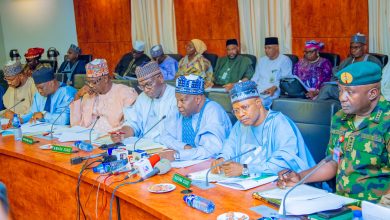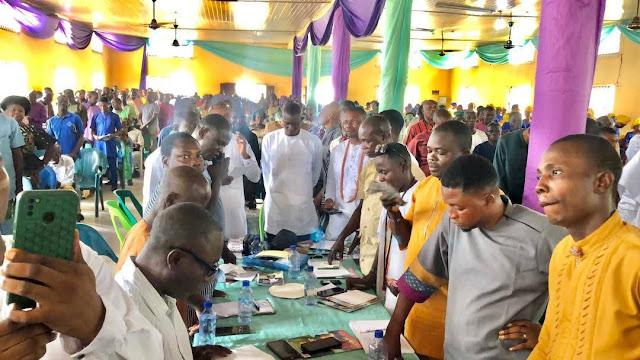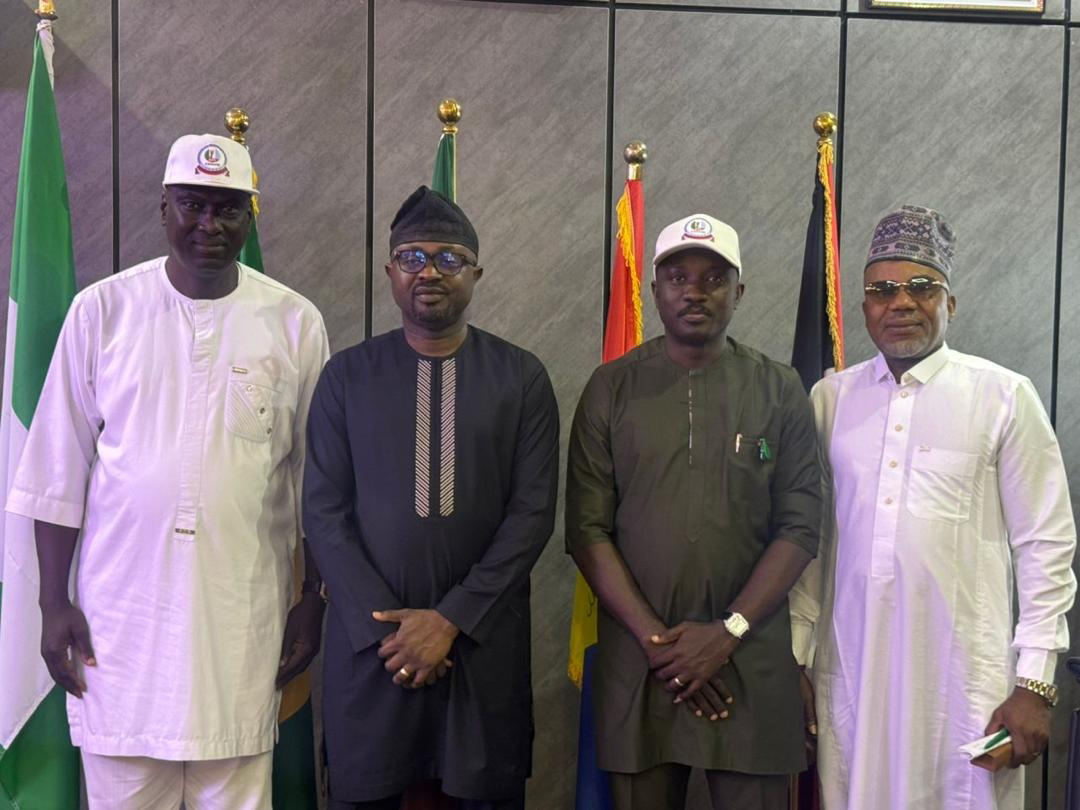In a significant development that could reshape Nigeria’s security architecture, the Northern Governors’ Forum (NGF) has thrown its weight behind President Bola Ahmed Tinubu’s proposal to establish state police across the country. This endorsement, announced on September 3, 2025, comes at a critical juncture as Nigeria grapples with worsening insecurity, particularly in the northern region, where banditry, kidnapping, terrorism, and communal clashes have claimed countless lives and displaced millions. The decision marks a pivotal shift in the ongoing debate over decentralized policing in Nigeria, a nation long reliant on a centralized police force under federal control. This article explores the governors’ decision, its implications, the broader context of insecurity in Nigeria, and the challenges and opportunities associated with state police.
Background: The State Police Debate in Nigeria
Nigeria’s security framework has historically been centralized, with the Nigeria Police Force (NPF) operating under the authority of the federal government. The 1999 Constitution, as amended, vests the federal government with exclusive control over policing, a structure inherited from the country’s colonial and military eras. However, this centralized model has faced growing criticism for its inability to effectively address the diverse and localized security challenges across Nigeria’s 36 states and the Federal Capital Territory (FCT).
Proponents of state police argue that decentralizing policing would enable states to tailor security strategies to their unique challenges, improve response times, and foster greater accountability to local communities. Critics, however, warn of potential abuses, including the risk of state governors weaponizing police forces for political purposes, exacerbating ethnic and regional tensions, or creating uneven standards of policing across states. The debate has been particularly contentious in northern Nigeria, where some leaders have historically opposed state police, citing fears of political misuse and inadequate funding.
The NGF’s recent endorsement of state police signals a departure from this skepticism, reflecting the urgency of addressing the deteriorating security situation in the region. The decision aligns with President Tinubu’s broader agenda to reform Nigeria’s security architecture, a key promise of his administration since assuming office in May 2023.
The Northern Governors’ Forum and the Endorsement
The Northern Governors’ Forum, comprising the 19 governors of Nigeria’s northern states, convened a meeting in Kaduna on September 2, 2025, to deliberate on pressing regional issues, with security topping the agenda. In a communiqué issued at the end of the meeting, the governors expressed unanimous support for President Tinubu’s proposal to establish state police, describing it as a “pragmatic and necessary” step to address the region’s security challenges.
The communiqué, signed by the NGF Chairman and Governor of Gombe State, Inuwa Yahaya, emphasized that state police would complement existing federal security agencies, including the Nigeria Police Force, the Nigerian Army, and the Nigeria Security and Civil Defence Corps (NSCDC). The governors argued that localized policing would enhance intelligence-gathering, improve community engagement, and enable faster responses to security threats. They also called for robust safeguards to prevent abuse, including clear legal frameworks, oversight mechanisms, and adequate funding to ensure the sustainability of state police forces.
The governors’ endorsement comes amid a surge in violent incidents across northern Nigeria. In recent months, states such as Zamfara, Katsina, Kaduna, Borno, and Plateau have witnessed escalating attacks by bandits, insurgents, and armed herders, leading to significant loss of life and property. Kidnapping for ransom has become a lucrative enterprise, with entire communities living in fear. The governors acknowledged that the centralized police system, stretched thin by competing demands across the country, has struggled to contain these threats.
Insecurity in Northern Nigeria: A Growing Crisis
Northern Nigeria has long been a hotspot for insecurity, with multiple overlapping conflicts creating a complex security landscape. The Boko Haram insurgency, which began in 2009, continues to wreak havoc in the Northeast, particularly in Borno, Yobe, and Adamawa states. Despite military efforts to degrade the group, factions such as the Islamic State West Africa Province (ISWAP) have sustained their campaign of violence, targeting civilians, security forces, and critical infrastructure.
In the Northwest, banditry has emerged as a dominant threat. Armed groups, often operating with impunity in rural areas, engage in cattle rustling, kidnapping, and village raids. States like Zamfara and Katsina have become epicenters of this crisis, with thousands of residents displaced and schools shuttered due to insecurity. The phenomenon of “bandit kings” controlling vast swathes of territory has exposed the limitations of federal security forces, which are often understaffed and ill-equipped to cover remote areas.
Central Nigeria, particularly Plateau, Benue, and Nasarawa states, has been plagued by farmer-herder clashes, fueled by competition over land and water resources. These conflicts, often tinged with ethnic and religious dimensions, have led to cycles of violence and reprisal attacks, further straining security resources. The proliferation of small arms and light weapons, coupled with weak governance and socioeconomic challenges, has exacerbated these conflicts, creating a vicious cycle of violence and instability.
The human toll of insecurity in northern Nigeria is staggering. According to a 2024 report by the United Nations, over 2.7 million people are internally displaced in the region, with millions more facing acute food insecurity. The economic impact is equally severe, with agriculture—a mainstay of the northern economy—disrupted by incessant attacks on farmers. Schools, markets, and healthcare facilities have also been targeted, undermining development and deepening poverty.
President Tinubu’s Security Agenda
Since taking office, President Tinubu has prioritized security as a cornerstone of his administration’s agenda. In his inaugural address on May 29, 2023, he pledged to overhaul Nigeria’s security architecture, emphasizing the need for a multi-pronged approach that combines kinetic and non-kinetic strategies. The proposal for state police is a central plank of this agenda, reflecting Tinubu’s belief that decentralized policing is essential to addressing Nigeria’s diverse security challenges.
The president’s push for state police builds on earlier efforts by his predecessors. During the administration of former President Muhammadu Buhari (2015–2023), the idea of state police gained traction but faced resistance from some northern leaders and federal lawmakers. In 2020, the National Assembly considered a bill to amend the Constitution to allow for state police, but it stalled due to lack of consensus. Tinubu’s renewed push, backed by the NGF, suggests a growing political will to overcome these hurdles.
In addition to state police, Tinubu’s security agenda includes strengthening the Nigeria Police Force, modernizing the military, and investing in technology-driven solutions such as surveillance systems and drones. The administration has also emphasized community-based approaches, including dialogue with stakeholders to address the root causes of insecurity, such as poverty, unemployment, and ethnic tensions.
Implications of the NGF’s Endorsement
The Northern Governors’ Forum’s support for state police has far-reaching implications for Nigeria’s security, governance, and federal structure. Below are some key considerations:
Enhanced Local Security: State police could enable governors to address localized threats more effectively. For instance, states like Zamfara and Borno, which face distinct security challenges, could deploy tailored strategies, such as community policing or specialized anti-banditry units. Local knowledge and proximity to affected areas would likely improve response times and intelligence-gathering.
Federal-State Relations: The creation of state police would necessitate a redefinition of federal-state relations. The 1999 Constitution would need to be amended to devolve policing powers to states, a process that requires the approval of two-thirds of the National Assembly and state assemblies. This could spark debates about fiscal federalism, as states would need adequate funding to maintain their police forces.
Risk of Abuse: Critics of state police have long warned of the potential for governors to misuse police forces for political ends, such as suppressing opposition or targeting rival ethnic groups. The NGF’s call for safeguards, such as independent oversight bodies and clear operational guidelines, will be critical to mitigating these risks. Lessons from Nigeria’s experience with state-controlled vigilante groups, such as the Civilian Joint Task Force (CJTF) in Borno, underscore the need for accountability.
Funding Challenges: Establishing and sustaining state police forces will require significant financial resources. Many northern states, which rely heavily on federal allocations, may struggle to fund their police forces without additional revenue. The NGF has urged the federal government to provide support, possibly through a dedicated fund or grants, to ensure equitable implementation across states.
Regional Dynamics: The endorsement of state police by northern governors could influence other regions, particularly the South, where calls for decentralized policing have been louder. Southern states, such as Lagos and Rivers, have already established quasi-police units like the Lagos Neighbourhood Safety Corps. Harmonizing these efforts into a cohesive national framework will be a key challenge.
Challenges to Implementation
While the NGF’s endorsement is a significant step, implementing state police in Nigeria will not be without challenges. First, the constitutional amendment process is complex and time-consuming. Previous attempts to amend the Constitution on policing have faced resistance from lawmakers wary of ceding federal control. Building consensus across Nigeria’s diverse political landscape will require sustained advocacy and negotiation.
Second, funding remains a major hurdle. The Nigeria Police Force is already underfunded, with officers often lacking basic equipment and training. States, particularly those with limited revenue, may struggle to establish and maintain effective police forces. The federal government will need to devise a funding model that balances state autonomy with national support.
Third, ensuring uniformity and standards across state police forces is critical. Without clear guidelines, there is a risk of creating a patchwork system where some states have well-equipped forces while others lag behind. The establishment of a national framework, possibly overseen by a federal body, could help standardize training, equipment, and operations.
Finally, public trust in state police will be essential for their success. Decades of mistrust in the Nigeria Police Force, due to allegations of corruption and brutality, have eroded confidence in law enforcement. State police forces will need to prioritize community engagement and transparency to build legitimacy.
Opportunities for Reform
Despite these challenges, the creation of state police presents significant opportunities for reform. By decentralizing policing, Nigeria can move toward a more responsive and accountable security system. States could experiment with innovative approaches, such as community policing models that leverage local knowledge and cultural sensitivities. For example, in areas affected by farmer-herder clashes, state police could work with traditional leaders to mediate disputes and prevent violence.
State police could also reduce the burden on federal security agencies, allowing them to focus on national threats such as terrorism and cross-border crime. This division of labor could improve overall efficiency and effectiveness. Moreover, state police could create jobs, providing opportunities for youth in regions plagued by unemployment—a key driver of insecurity.
Broader Context: The Path Forward
The NGF’s endorsement of state police reflects a broader recognition that Nigeria’s security challenges require bold and innovative solutions. The centralized policing model, designed for a different era, has proven inadequate in addressing the complex and evolving threats facing the country. By embracing decentralization, Nigeria has an opportunity to build a more resilient and adaptive security architecture.
However, the success of state police will depend on careful planning and implementation. The federal government, in collaboration with states, must develop a clear roadmap that addresses funding, oversight, and capacity-building. Engaging civil society, traditional leaders, and other stakeholders will be critical to ensuring that state police serve the interests of communities rather than political elites.
President Tinubu’s administration has a unique opportunity to lead this transformation. By building on the momentum created by the NGF’s endorsement, the government can push for constitutional reforms and lay the groundwork for a new era of policing in Nigeria. The stakes are high: failure to address insecurity could undermine the country’s stability and development, while success could pave the way for a safer and more prosperous Nigeria.
Conclusion
The Northern Governors’ Forum’s backing of President Tinubu’s state police proposal is a landmark development in Nigeria’s quest to tackle its worsening security crisis. As the country grapples with banditry, terrorism, and communal violence, the need for localized and responsive policing has never been more urgent. While challenges remain, including funding, oversight, and constitutional hurdles, the endorsement signals a growing consensus on the need for reform. By addressing these challenges and seizing the opportunities presented by state police, Nigeria can take a significant step toward a more secure and stable future.
The road ahead will require political will, collaboration, and a commitment to putting the safety of Nigerians first. As the debate over state police moves forward, all eyes will be on President Tinubu and the governors to deliver on their promise of a safer Nigeria.






